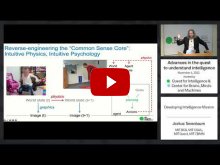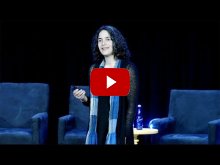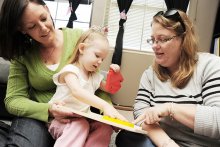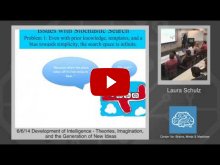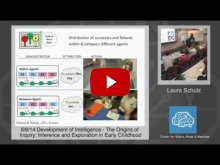
Associated Research Module:
Associated Research Thrust:
Laura Schulz is a Professor of Cognitive Sciences in the Brain and Cognitive Sciences Department at MIT.
Research statement:
The infrastructure of human cognition — our commonsense understanding of the physical and social world — is constructed during early childhood. I study the representations and learning mechanisms that underlie this feat. My research looks at 1) how children infer the concepts and causal relations that enable them to engage in accurate prediction, explanation, and intervention; 2) the factors that support curiosity and exploration, allowing children to engage in effective discovery and 3) how the social-communicative context (e.g., demonstrating evidence, explaining events, disagreeing about hypotheses) affects children’s learning.
Computational models of human cognition, in particular work on hierarchical Bayesian inference models, inform much of the research in the lab. I have been especially interested in understanding trade-offs in the inferential process, such that the same inductive biases that constrain the hypothesis space and allow us to draw rich inferences from sparse data can also make it difficult for us to revise our beliefs. This paradox poses a challenge for educators but also provides insight into the factors that might promote effective learning and teaching.
Most of the research in the lab involves babies and children. Since babies and children have limited prior knowledge and no formal training, understanding how children reason about the world can give us insight into the origins of knowledge and fundamental principles of learning. We have on-site laboratories at the Boston Children’s Museum and the Discovery Center at the Museum of Science, Boston and use a variety of approaches, ranging from infant-looking time methods to free-play paradigms in our studies.

